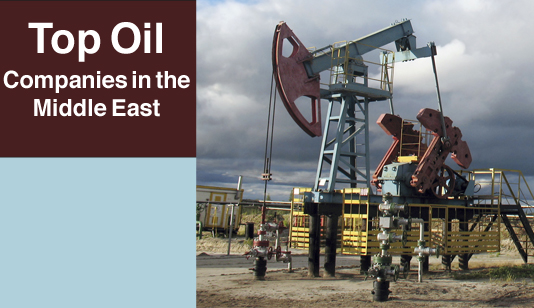Titans of Trade: Leading Oil Trading Companies in the Middle East
The Middle East is a powerhouse in the global oil industry, home to some of the world’s largest oil reserves and leading oil trading companies. These companies play a crucial role in the international energy market, leveraging their strategic locations, robust infrastructure, and deep industry expertise. This blog highlights the top oil trading companies in the Middle East, showcasing their influence and contributions to the global energy sector.
1. Saudi Aramco Trading Company (ATC)
Overview:
- Saudi Aramco Trading Company is a subsidiary of Saudi Aramco, the world’s largest oil producer. ATC handles the trading of crude oil, refined products, and petrochemicals.
Key Highlights:
- Global Reach: ATC has a strong global presence with offices in strategic locations such as London, Singapore, and Fujairah.
- Integrated Operations: Benefiting from Saudi Aramco’s vast upstream and downstream operations, ATC has a robust supply chain and extensive market access.
Influence:
- As the trading arm of the largest oil company in the world, ATC significantly impacts global oil markets, providing liquidity and stability through its vast trading volumes.
2. Qatar Petroleum Trading (QPT)
Overview:
- Qatar Petroleum Trading is a subsidiary of Qatar Petroleum, one of the leading oil and gas companies globally. QPT focuses on the trading of crude oil, refined products, and natural gas.
Key Highlights:
- LNG Expertise: Qatar is the world’s largest exporter of liquefied natural gas (LNG), and QPT leverages this expertise to dominate the LNG trading market.
- Strategic Alliances: QPT has formed strategic partnerships with major international oil companies, enhancing its trading capabilities and market reach.
Influence:
- QPT plays a pivotal role in the global LNG market, driving innovation and efficiency in LNG trading and supply chain management.
3. Abu Dhabi National Oil Company (ADNOC) Trading
Overview:
- ADNOC Trading is a subsidiary of ADNOC, the state-owned oil company of the United Arab Emirates. ADNOC Trading handles the marketing and trading of crude oil, refined products, and petrochemicals.
Key Highlights:
- Diversified Portfolio: ADNOC Trading manages a diverse portfolio of energy products, catering to a wide range of international markets.
- Innovation and Sustainability: ADNOC is committed to innovation and sustainable practices, investing in technology and renewable energy projects.
Influence:
- ADNOC Trading is a key player in the global energy market, contributing to the UAE’s position as a major energy exporter and innovator in sustainable energy practices.
4. Kuwait Petroleum Corporation (KPC) Trading
Overview:
- Kuwait Petroleum Corporation is Kuwait’s national oil company, and its trading arm focuses on the marketing and trading of crude oil, refined products, and petrochemicals.
Key Highlights:
- Strategic Reserves: Kuwait has significant oil reserves, and KPC Trading leverages these assets to maintain a strong position in global markets.
- Integrated Supply Chain: KPC Trading benefits from Kuwait’s integrated oil and gas infrastructure, ensuring efficient trading and distribution.
Influence:
- KPC Trading’s strategic management of Kuwait’s vast oil reserves plays a critical role in global oil supply and price stability.
5. Oman Trading International (OTI)
Overview:
- Oman Trading International is a joint venture between Oman Oil Company and Vitol, one of the largest independent energy traders. OTI specializes in trading crude oil, refined products, and LNG.
Key Highlights:
- Joint Venture Synergy: The partnership with Vitol provides OTI with enhanced market access, trading expertise, and global reach.
- LNG Focus: Oman is a significant LNG exporter, and OTI leverages this to strengthen its position in the global LNG market.
Influence:
- OTI plays a crucial role in diversifying Oman’s economy and enhancing its presence in the global energy market through strategic trading activities.
Conclusion
The Middle East’s top oil trading companies are instrumental in shaping the global energy landscape. Through strategic operations, robust supply chains, and innovative practices, these companies ensure the stability and liquidity of global oil markets. As the energy sector evolves, these Middle Eastern giants continue to adapt and innovate, maintaining their leadership and influence in the ever-changing world of oil trading. Whether through traditional oil trading or expanding into LNG and renewable energy, these companies remain at the forefront of global energy dynamics.







